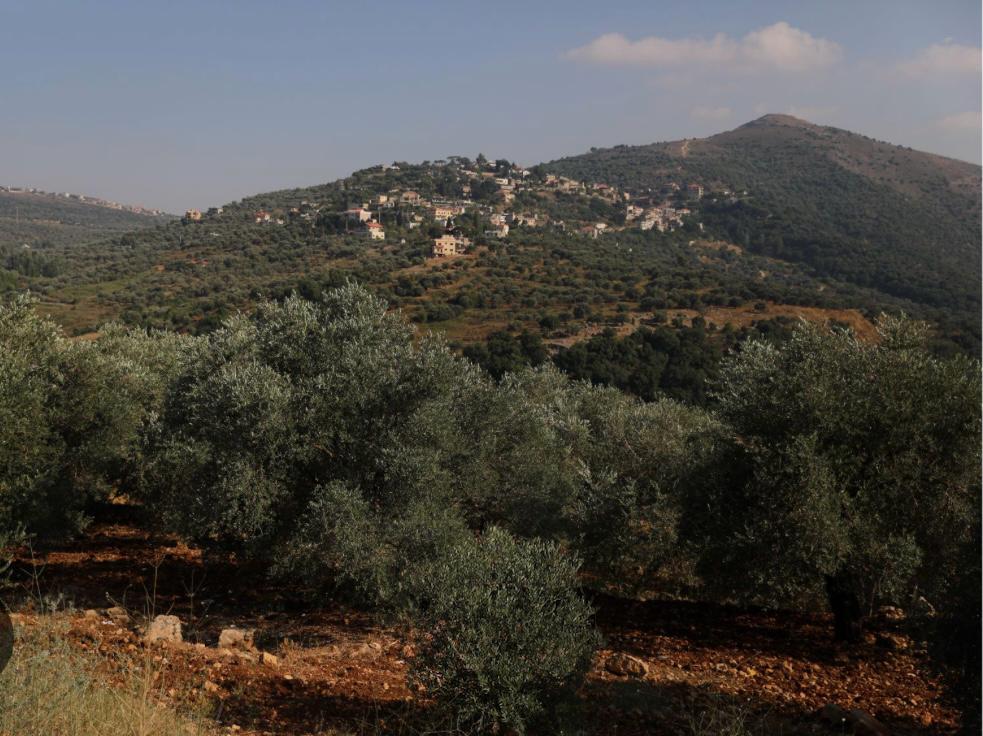With Hezbollah's war with Israel looming, Christian farmers fight to save olive harvest
As the mid-October harvest approaches in southern Lebanon, security concerns are rising. The uncertainty is fuelled by rumours of possible escalation along the Israeli-Lebanese border between Hezbollah and the IDF. Farmers hope for UNIFIL's protection. Olive cultivation produces between 100,000 and 200,000 tonnes per year, 70 per cent for extraction.
Beirut (AsiaNews) – In the twelfth month of Hezbollah's "war of support" against Israel, the situation in the border villages of southern Lebanon is as uncertain as ever. After a lull of several days, there is again talk on the Israeli side of intensifying military operations to "bring home the population" of northern Israel.
It is against this backdrop of rising tensions that Israeli raids have intensified in recent days, targeting new areas as part of the strategy of "creating rings of fire" in the valleys and forests connecting communities. Hezbollah has also opted for a change in tactics and is increasingly using drones in its operations.
As the olive picking season approaches, caution is required for olive grove owners. But Israeli bombings remain selective, sparing residential villages or areas inhabited by Christians, whose olive groves are also attentively guarded by owners.
This is the case, in particular, in Deir Mimas, Bourj el-Moulouk, Kleyaa and Rachaya, Marjeyoun district. The mayors of these villages, partly depopulated due to the situation, have just informed the Lebanese army and the UN International Peace Force (UNIFIL) that they want to pick olives.
“We won't start anything until we get an escort from UNIFIL, knowing that the situation seems to be deteriorating again," said a farmer from Deir Mimas.
“You never know?”
“You never know!” noted another resident in the same village on condition of anonymity. “A tank shell hit our house the other night. It's a miracle we weren't torn to pieces. But we refused to talk about it to the media, who came with their cameras. Our compatriots around us are nervous about the risks they are running, and we understand them. Many of them lost their lives in combat. We cannot complain publicly about a war that we deplore, but that they hold to be a sacred duty.”
“Besides,” he adds, “the brutality of the Israeli army knows no bounds. The other day, they bombed a Civil Defense fire pump that was fighting a blaze in an olive grove, killing the three men operating it.”
Christians in southern Lebanon, like most Lebanese, were hostile to the opening of a front with Israel on 8 October 2023, the day after Hamas launched its operation from Gaza. Yet Hezbollah launched the hostilities unilaterally, without consulting anyone.
“The harvest starts in mid-October and usually lasts a month and a half,” says Fouad.
Although he fled his home in Deir Mimas, he knows that he will have to return home for six to eight weeks, despite the risks, for the time it takes to harvest and sell the production.
“We hope to sell a 20-litre can at US$ 200 this year, compared to 0 last year," he says. “This increase is explained by inflation, which has an impact on the cost of labour.”
“We prefer to hire Lebanese day labourers rather than Syrians. We have already made an agreement with young people from the Wazzani River area. They will come to the site for work, but we have warned them that this year, they will have to work quickly.”
The residents of these villages, patrolled by the Spanish contingent of UNIFIL, say that local production has not suffered from the white phosphorous bombings of the Israeli army, which uses it sometimes as a rocket screen, sometimes as an incendiary shell.
“Our region has not been bombed, and UNIFIL has carried out the necessary analyses. We have been assured that our soil is not contaminated," says the farmer.
“However,” he adds, smiling, “it seems that all those who leave their homes momentarily find them infested with rodents and insects. We were told that it is because the bombings crack the soil and dislodge them (the animals) from their nests and burrows.”
With cultivation producing between 100,000 and 200,000 tonnes of olives per year, about 30 per cent of the harvest is used as table olives. The remaining 70 per cent is intended for oil extraction: between 15,000 and 25,000 tonnes of olive oil are produced per year in Lebanon, according to official figures.
* Names are omitted or made up at the request of the interviewees to protect them from possible reprisals.
03/01/2024 18:54







.png)










